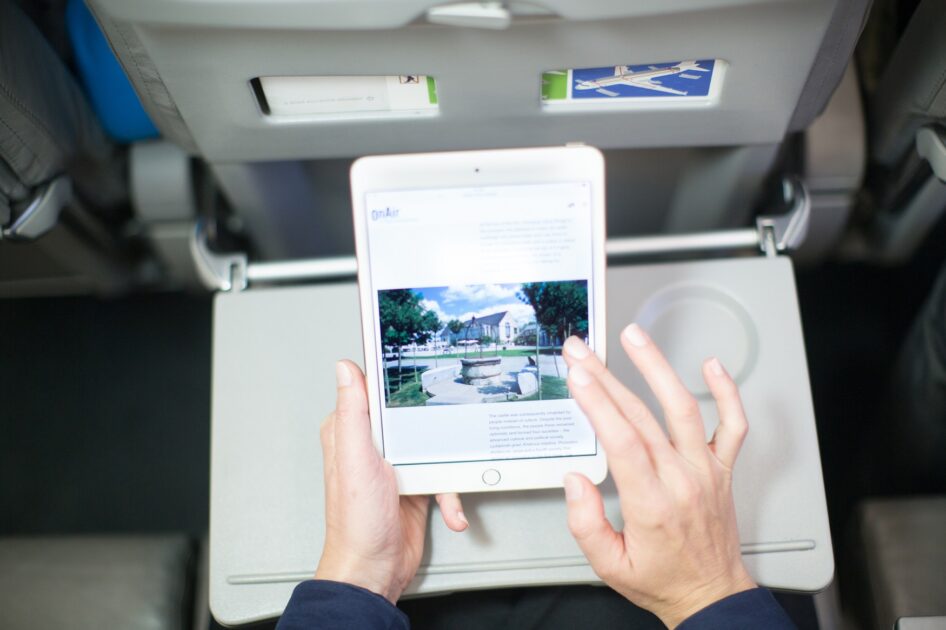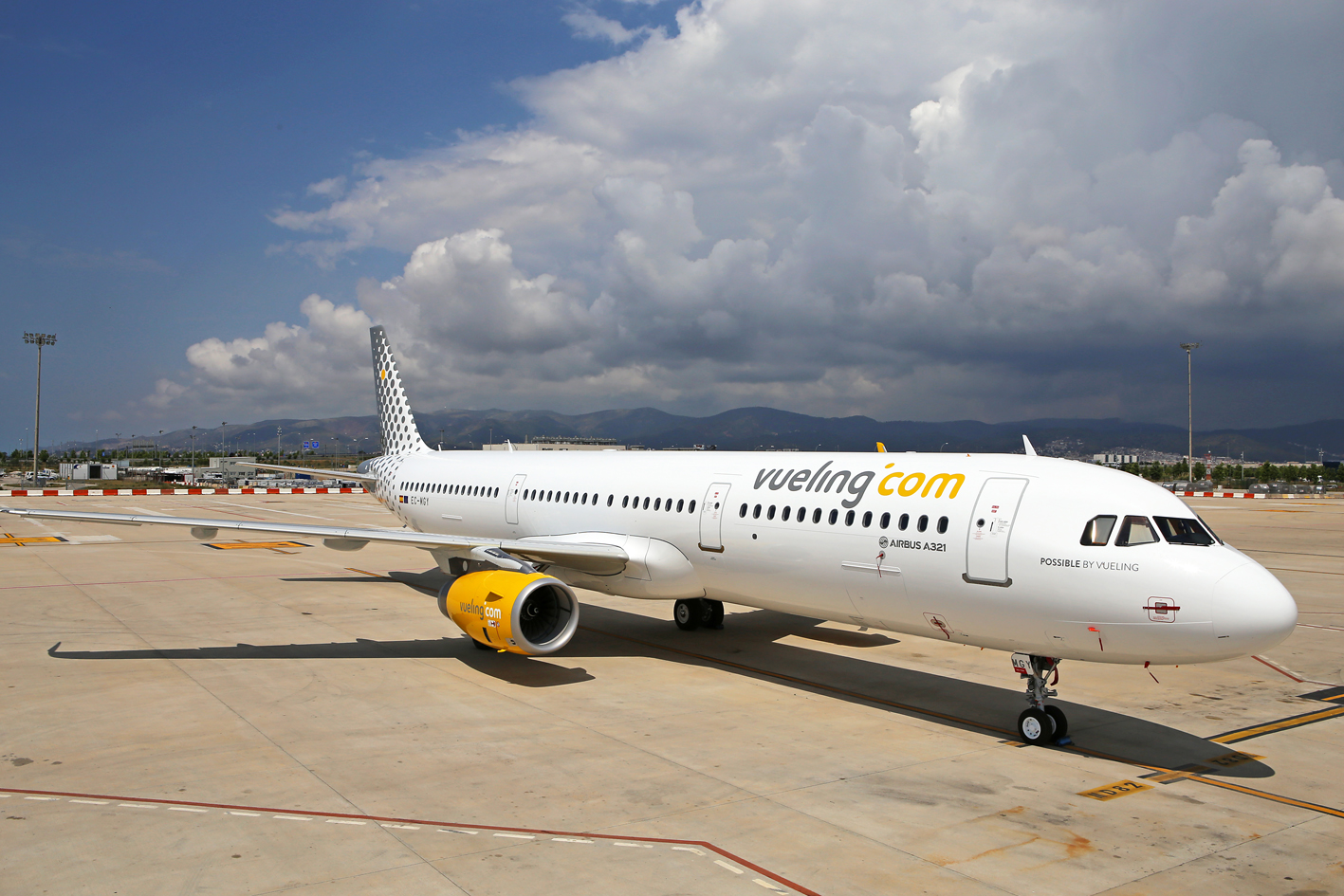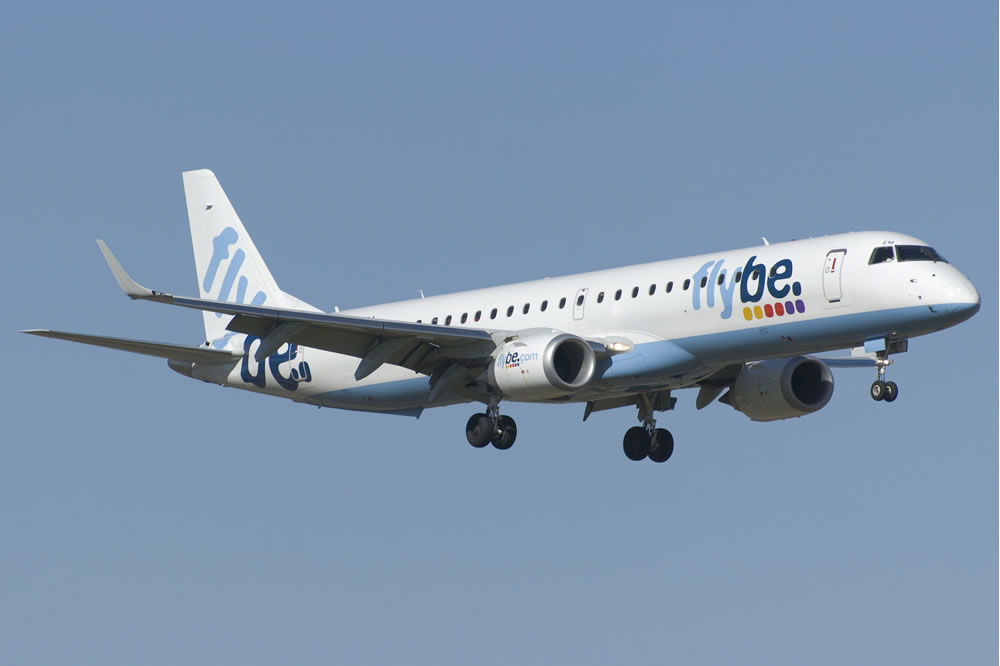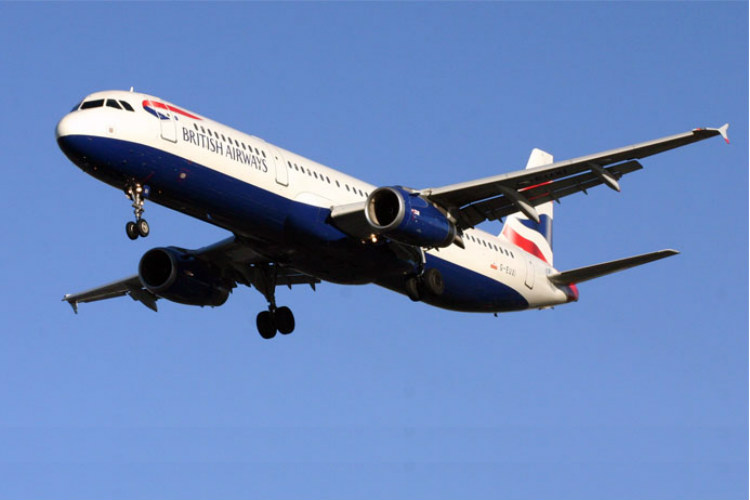Concern is growing that the USA Department of Homeland Security might impose a ban on passenger electronic devices in the cabin on flights from Europe including the UK. Yesterday a number of UK media outlets reported sources confirming that a ban could be imminent. The US and the UK imposed bans in late March.
The US targeted ten specific airports in the Middle East (Queen Alia International Airport (AMM), Cairo International Airport (CAI), Ataturk International Airport (IST), King Abdul-Aziz International Airport (JED), King Khalid International Airport (RUH), Kuwait International Airport (KWI), Mohammed V Airport (CMN), Hamad International Airport (DOH), Dubai International Airport (DXB), and Abu Dhabi International Airport (AUH) while the UK targeted six countries (Turkey, Lebanon, Egypt, Saudi Arabia, Jordan and Tunisia).
Gethinsinflight contacted the UK Department for Transport (DfT) which responded today with: “The safety and security of the travelling public is our highest priority. We keep aviation security under constant review, but we do not comment on speculation.”
But on 21st March the current ban came into force like a bolt out of the blue thrusting passengers and airlines into a sudden predicament. The ban is so important that the Department for Transport has posted a large alert on its home page signposted: Find Out About the New Restrictions on Phones, Laptops and Tablets’. *see specific guidance at the end of this article
When pressed on the matter a UK government spokesman said, ‘We have a longstanding policy not to talk about security measures’.
Meanwhile not only have passengers been forced to relinquish personal electronic devices larger than a mobile phone from the targetted countries in the Middle East when boarding flights to the US or the UK, and therefore stow them in the hold (or leave them behind altogether) but there is a palpable impact on the airlines themselves: the largest carrier in the Gulf, Emirates has suffered a downturn in demand owing to the ban and will cease some flights to the US. Five out of 12 routes are affected from Dubai to several gateways in the US.
Any ban that spreads to Europe in a similar vein could not only hurt the passenger experience but also the airline industry itself.
No wonder then that Joe Leader who heads up the airline passenger experience association APEX says, ‘Last month, APEX sounded the alarm when the airline electronics ban started as we warned that it could easily spread as reported today. Having the electronics ban spread to the European Union for flights to the United States would damage the personal freedom integral to international air travel. We must stand together with government solutions for personal electronics that enable both security and accessibility for our airline passengers worldwide.’

Leader urges governments to come up with their own solutions to avoid the new draconian measures. He says, ‘Fighting potential threats means finding government solutions that do not take the laptops, tablets, e-readers, cameras, and large phones out of the hands of the millions of law-abiding passengers that use them every day. We owe our air travelers worldwide the best options to make their flights enjoyable and productive.’
Such measures could include chemical detection machines which are already utilized worldwide to detect illicit items in electronics, according to Leader. So-called chemical sniffing and functionality checks on the devices themselves could combat any threat, argued Leader at the Passenger Experience Conference in Hamburg earlier this month.
The inflight entertainment technology industry could also be badly affected. IFE providers that trade on inflight wi-fi networks in the cabin could see a lessening demand for their products and services. Such products distribute content and internet access to the passenger’s personal electronic device (PED). However, opinions vary, as some believe that the smartphone is enough to sustain growth and business, as was heard at the Passenger Experience Conference in Hamburg last month.
The inflight entertainment industry could also be badly affected. IFE providers that trade on inflight wi-fi networks in the cabin could see a lessening demand for their products and services. Such products distribute content and internet access to the passenger’s own device. However, opinions vary, as some believe that the smartphone is enough to sustain growth and business, as was heard at the Passenger Experience Conference in Hamburg last month. The ban could reboot the market for embedded IFE and inseat screens.
Of course it is still early days. Remedial measures are being introduced on affected routes. For example, some airlines are offering passengers rental laptops and tablets as a substitute. Another airline is only applying the rule at the gate and not at check-in therefore enabling its passengers to make the most of their device before boarding.
Sceptics argue that the original ban plays to the commercial benefit of US carriers who allege that carriers in the Middle East are subsidised and have enjoyed an unfair advantage in the US market.
However, if the ban does spread to Europe and the UK, that argument is open to debate.
Fast facts on global usage of carry-on devices:
• 43% of worldwide airline passengers bring a tablet device on-board with 70% of these passengers using their tablet device in-flight;
• 38% of worldwide airline passengers bring a laptop computer on-board with 42% of these passengers using their laptop in-flight; and
• 22% of worldwide airline passengers bring e-Readers on-board with 77% of these passengers using their e-Reader in-flight.
THE CURRENT UK BAN*
The specific dimensions of the device limitations imposed by the UK DfT are: length: 16.0cm, width: 9.3cm, depth: 1.5cm.
Some peripherals and accessories are not allowed either: keyboards, power cable transformers, external hard drives. Forbidden both in the cabin and hold (i.e. not allowed inflight at all are spare or separate device batteries or portable power sources.
Smartphones that are allowed include:
• iPhone 7 Plus
• Samsung Galaxy 7 Edge
• Samsung Galaxy Note 3
• LG G3
• Sony Xperia Z2
There are anomalies between the US and the UK current ban. For example the UK allows portable personal cameras in the cabin but the US bans them. The UK has published the specific dimensions of devices to be placed in the hold while the US has not citing only ‘large electronic devices’ with a list of hardware types by functionality.







